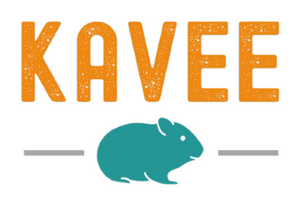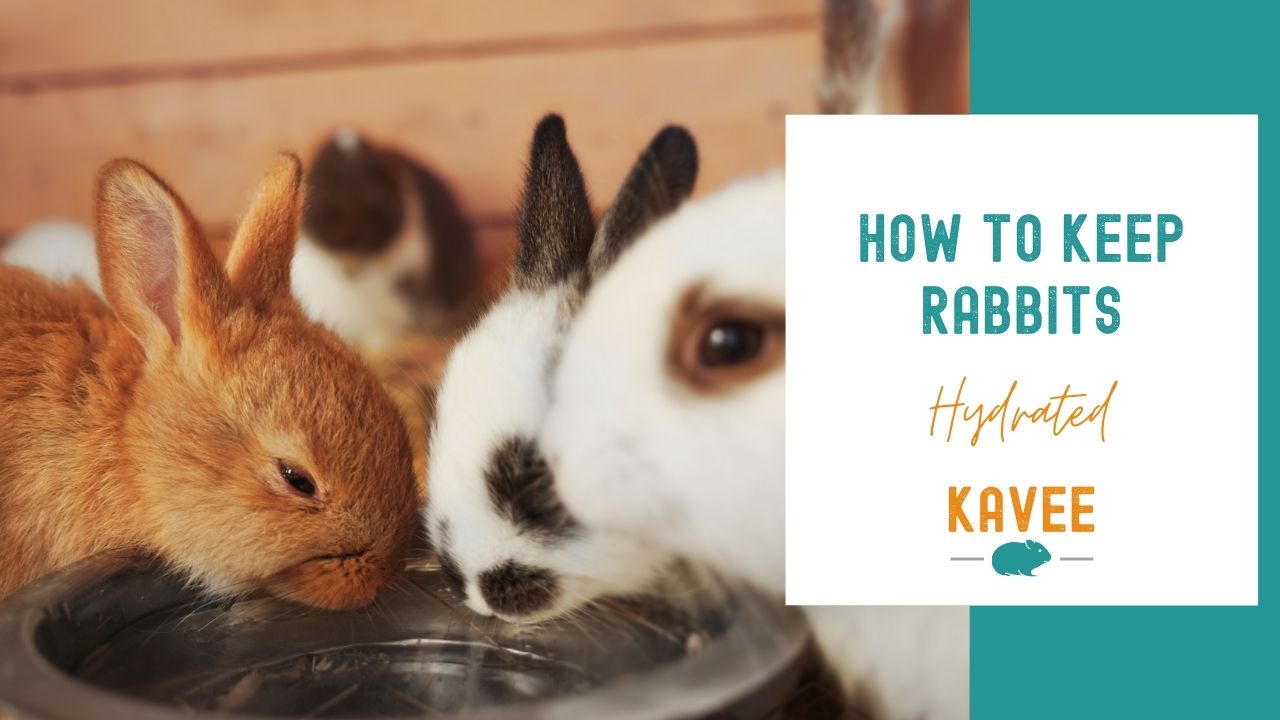As hoomans, we’re constantly being told to drink litres of water everyday, and are familiar with the importance of this resource for our bodies. While our furry friends are quite different from us, water still makes up an important part of rabbit care.
In fact, water is as beneficial as hay to their digestive system. So you’ll want to make sure your sweet floofs have unlimited access to this refreshing beverage at all times.
In this article, we’ll explore why water is so important for your rabbit’s health and well-being, as well as symptoms to look out for in a thirsty rabbit. Read on for all things rabbit hydration!

Why Water Is Important for Rabbits
Water plays a variety of important roles in your rabbit’s body, with its main functions being:
Maintaining healthy blood, cells, and organs.Keeping everything moving through the gut.Flushing out excess calcium.
- Regulating temperature.
The Importance of Water for Rabbit Digestion
A bunny’s digestive system needs plenty of water to work properly. If food dries out as it passes through, it could lead to blockages in the gut. Water keeps things moist and moving along nicely!
The problem with rabbit digestive issues is that they can quickly turn critical. Blocked food sitting in the large intestine means that more water is drawn out into the bloodstream, which could lead to a serious condition like Gastrointestinal Stasis.
The Role of Water in Rabbit Kidney Function
Unlike us hoomans, rabbits absorb every last bit of calcium from their food. They need a lot of it to build strong bones and support their ever-growing teeth, but too much of a good thing can be detrimental.
Fortunately, a bunny’s body will self-regulate this process, with excess calcium being flushed out in their urine (this is why it can sometimes look a little chalky).
However, if they fail to drink enough water to prevent a build-up of calcium, they could develop serious health issues like bladder sludge (yep, it’s as miserable as it sounds), bladder stones, or kidney stones.

Water Helps Rabbits Regulate Their Temperature
In the wild, rabbits will spend the hottest hours of the day underground in their burrows where it's nice and cool. They’ll typically venture above ground either early in the morning or later in the evening when the temperature has dropped.
When it’s warm, rabbits need to drink even more water to prevent dehydration and regulate their body temperature. On a hot day, a bunny can consume nearly four times as much water as food! Providing unlimited clean drinking water is crucial, so make sure your buns have their own water source in a shady spot.
How Much Water Does a Rabbit Need?
Rabbits will naturally drink when they’re thirsty, so keeping their bowls or bottles topped up with fresh, clean water is all you really need to do. However, they may refuse to drink if they’re stressed, find their water too hot or a bit stale for their liking.
How much a bunny will drink varies based on activity and temperatures, but in general, rabbits consume around 50ml-150ml daily, per kg of weight. So a 2kg rabbit could drink anywhere up to 300ml a day!
Fresh veggies and leafy greens have a high water content, so it'd be normal for bunnies who are nibbling on these throughout the day to drink less. But if you notice that they're suddenly drinking more or less than normal, then it'd be better to bring them to the vet for a check-up.

Providing Water to Your Rabbit
Water Bowl vs Water Bottle: What’s Best for Rabbits?
There’s no right or wrong answer to this question, so it’s whatever works best for you and your buns. A bowl may be a more natural way for them to drink and encourage better bunny hydration, but could be easier to flip over. That’s why it’d be better to choose a ceramic bowl or figure out a way to secure it in place.
A water bottle, instead, would never get flipped over but will need you to check that it doesn't get blocked or malfunctions. If you’re not sure, provide both a bowl and a bottle and see which your bunnies prefer!

Keeping Your Rabbit’s Water Fresh
Remember to freshen up your rabbit’s water on a daily basis and keep it topped up throughout the day. This isn’t just to keep your Royal Furriness hoppy - fresh and clean water prevents the build-up of bacteria.
That’s why you should also include a deep clean of water bowls/bottles to your cleaning schedule, and do it at least once a week with hot, soapy water.
Signs of Dehydration in Rabbits
It’s crucial to know the signs of dehydration in rabbits so that you can nip any potential problems in the bud. Some symptoms to look out for include:
Few or no droppings - Your rabbit will either stop pooping altogether or only produce hard, small stools.
Darker urine - You notice your rabbit’s urine is more brownish in color, rather than the usual yellowy orange.
Lack of appetite - When your bunny is refusing their favorite treats, you know something’s up!
Lethargic - Your bunny may be lacking energy, not moving very much, or be less alert than usual.
In this situation, don’t hesitate to get your rabbit to a vet as a matter of urgency. If you can’t reach them quickly enough, you may need to syringe-feed them water or provide them with liquid rescue feed.

Conclusion
Hopefully you’re now fully up to speed on the importance of rabbit hydration! Topping up their water bottle shouldn’t just be an afterthought - it’s essential for proper rabbit care. If their digestive system isn’t in good working order, it could sadly lead to very poorly buns.
As with everything, a good indoor rabbit cage will also contribute to the health and well-being of your bunnies. When you have a designated space for them, you can more easily ensure that it encourages them to stay hydrated and follow a balanced diet. After all, everybunny deserves their own dining corner!



